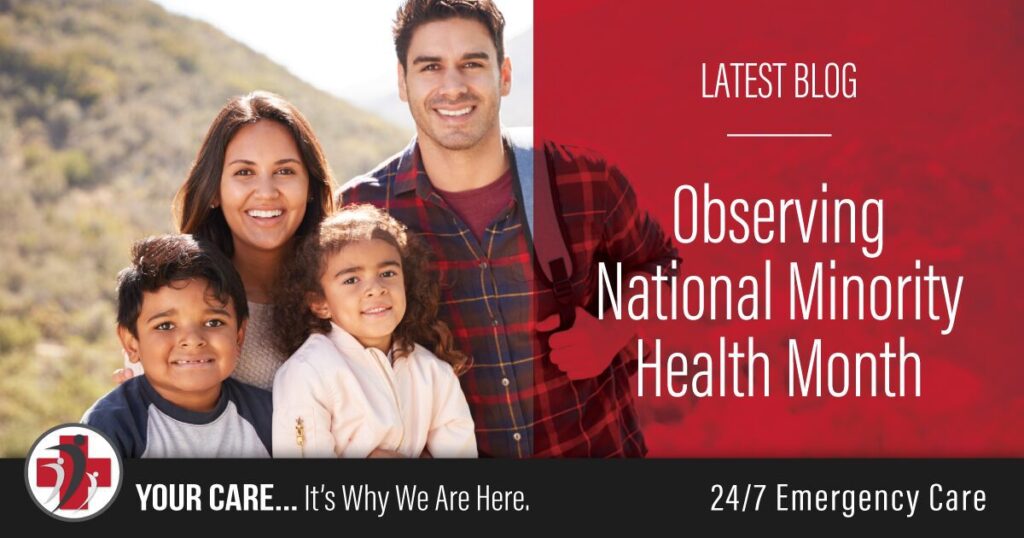Do you believe that all health care is created equally? Or that patients have the right to expect fair, high-quality, and equitable health care, regardless of demographic information? This month, through the observance of National Minority Health Month we want to bring awareness to the health disparities that exist within our country’s health care system.
If you need a refresher on what health disparities are and how they affect our country, here’s what you should know:
- Simply put, health disparities are “a particular type of health difference that is closely linked with economic, social, or environmental disadvantage.” (Healthy People, 2020)
- Health disparities are closely tied to the historical and current unequal allocation of system advantages.
- Things that contribute to health disparities, or unequal acquisition of health care, include genetics, access to care, community characteristics (limited access to healthy foods, educational inequality, violence, poverty), environmental conditions, language barriers, and poor quality of care.
There are, unfortunately, many examples of health disparity we see today, where different minority groups experience certain health issues or health threats at a higher frequency. Some examples of these include:
- Mental health – minorities often experience symptoms of poor mental health due to reasons including inaccessibility of high quality mental health care, cultural stigma surrounding mental health care, and discrimination
- Lower life expectancy – life expectancy in years for American Indian/Alaska Native people and Black people are estimated at 65.2 and 70.8, respectively, compared to 76.4 for White people, 77.7 for Hispanic people, and 83.5 for Asian people
- Lack of health insurance – American Indian/Alaska Native people had the highest uninsured rates as of 2022
- Prevalence of some diseases – Certain groups of people experience diseases like diabetes, cervical cancer, lung cancer, and asthma more often than other groups
- Poorer quality of health care – Nearly every minority group, including racial and ethnic minorities, women, children, people with disabilities, and people with lower incomes, are susceptible to unequitable access to high quality health care
Each year, National Minority Health Month observances are guided by a theme, and the theme for 2024 is, “Be the Source for Better Health: Improving Health Outcomes Through our Cultures, Communities, and Connections.” This theme urges medical providers, government agencies, and individuals to work together to facilitate better health for all people, regardless of race, socioeconomic status, location, or ethnicity.
At Fountain Hills Medical Center, we feel passionately about providing equitable care for all patients, every day, no matter what. Mirroring the theme for National Minority Health Month this year, we consistently aim to be a source for quality healthcare in Fountain Hills. We’re proud to have established productive connections with many prominent community leaders while working to dissolve health care barriers. Obtaining quality medical care in Fountain Hills should never be difficult, no matter your gender, race, ethnicity, age, level of ability, or socioeconomic status. Come see what makes us different, and why YOU and your family will be well taken care of at Fountain Hills Medical Center.

